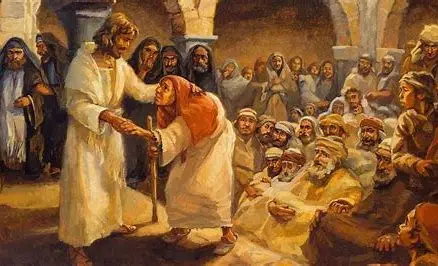The word Sabbath originates from the Babylonian language, from the word sabatu which means rest day. The reason I mention this is because the Babylonian language was in existence hundreds of years before the Hebrew race was founded by Abraham. There is a word in over 160 languages that originate from ancient times that contain a translation of the word sabatu or Sabbath and define it as meaning a day of rest but most of them designate this day as being a Saturday which is the pattern the Jewish people in Jesus’ day followed.
JEREMIAH Chapter 17 states –
“This is what the Lord says: be careful not to carry a load on the Sabbath day or bring it through the gates of Jerusalem. Do not bring a load out of your houses or do any work on the Sabbath, but keep the Sabbath day holy, as I commanded your ancestors…
“If you are careful to obey me, declares the Lord, and bring no load through the gates of this city on the Sabbath, but keep the Sabbath day holy by not doing any work on it, then kings who sit on David’s throne will come through the gates of this city with their officials. They and their officials will come riding in chariots and on horses, accompanied by the men of Judah and those living in Jerusalem, and this city will be inhabited for ever.”
According to Jewish Law – the Law given to Moses himself as detailed in the book of Leviticus and handed down the generations to the time when Jesus walked the earth with his disciples – these were the rules to be followed and Jewish Leaders had a tendency to see everything as black and white with no grey areas. So, as far as they were concerned any activity that resulted in accomplishment would be considered to be work. This, obviously, included healing which the leaders stated could be done on any other day of the week but not the rest day as that should be devoted to resting.
But Jesus isn’t telling us that we shouldn’t rest – not by any means. He is pointing out and shaming those same leaders that Sabbath rest isn’t simply about taking a rest from labour and abandoning every activity, and certainly not to the detriment of animals or people, but it is about honouring God and devoting the day to resting in Him.
But what exactly does it mean to rest? One of the dictionary definitions is: to refresh oneself, as by sleeping, lying down, or relaxing. That sounds fair doesn’t it? And there’s more! Synonyms listed are time off, let up, unbend.

Of course she does, and Jesus recognises this and points out to the learned folk in the synagogue that it’s all very well to follow the letter of the law when it suits you but what about when you go and look after your animals? Are you not engaging in activity – are you carrying out a labourious task? Does that not constitute work? And if you are prepared to do this for the animals in your care how much more should you be prepared to do it for the people of your community – the people who look to you for leadership and example?
The point being that it isn’t the name of the day that makes it a Holy day but the actions we take on that day. It should be a day devoted to honouring God – for many that means attending church services like this to worship and pray, for others it might be more simple and consist of reading the Bible and praying for others; again it might be something more active such as taking a walk in the countryside and marvelling at the beautiful world that is God’s gift to us and thanking Him for the opportunity to replenish ourselves. There are many different ways to honour the Sabbath/rest day which God will delight in but neglecting people like the woman possessed does not, in any way, honour God and by stating that she is not worthy of attention on God’s holy day is denying that she is a beloved child of God and not deserving of compassion or rest from her ailments.